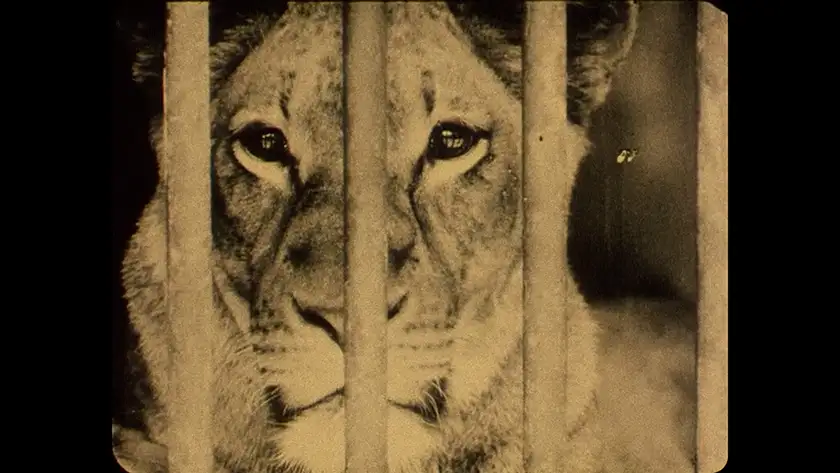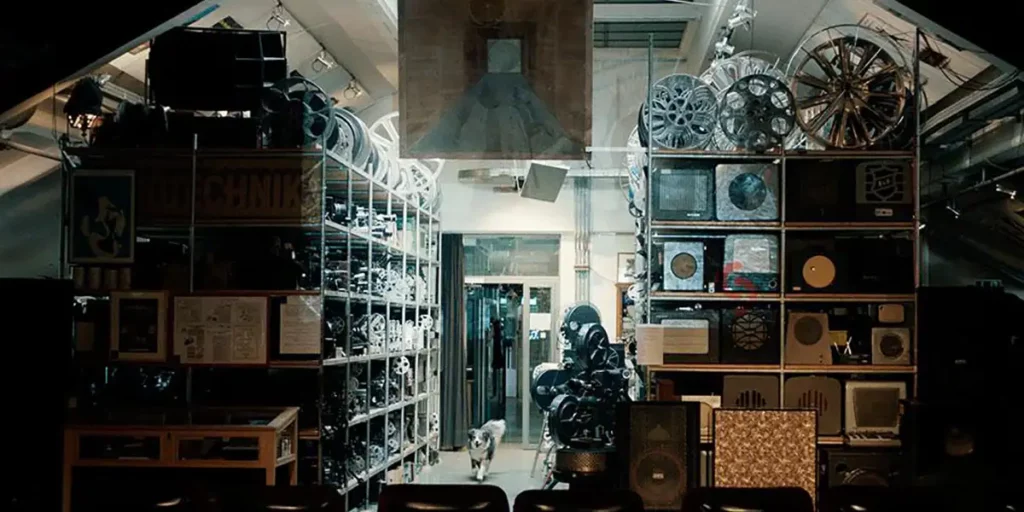Bestiari, Erbari, Lapidari is a monumental, vital essay documentary that is simultaneously therapeutic, moving, and informative.
Directors: Massimo d’Anolfi & Martina Parenti
Genre: Documentary
Run Time: 206′
Venice World Premiere: September 3, 2024
Release Date: TBA
This year, Victor Kossakovsky’s brilliant documentary Architecton already showed us that stone makes for a surprisingly interesting subject matter. Bestiari, Erbari, Lapidari (Bestiaries, Herbaria, Lapidaries) is further proof of this (its fascinating last section focuses on fossils), but Massimo D’Anolfi and Martina Parenti’s (I Promessi Sposi) documentary delves into other subject matters, such as animals and plants.
Across its three parts, which are different in terms of the documentary form they utilise, we are, along with the directors, both detached observers and deeply analytical presences. Despite their contrasts in form and subject matter, the three parts coalesce into something magical and moving, a haunting reflection on humanity and the wider world.
Running at 206 minutes, Bestiari, Erbari, Lapidari is a film that warrants your full attention, but it is a demand that comes into effect very easily. D’Anolfi and Parenti, who also worked on most other aspects of the film such as photography and camera, patiently invite us into the world we inhabit. It isn’t our world, but one we share with animals, plants, and so on. At one point, an anonymous voiceover explains how small humans really are in comparison to the wider world and universe. Where this might feel overwhelming in the wrong hands, D’Anolfi and Parenti present such observations with such elegance and consideration that it never once threatens to bamboozle the viewer.
Bestiari, Erbari, Lapidari is split into three parts: bestiaries, subheaded as “Cinema invents new cages”; herbaria, as “the care”; and lapidaries, as “fossils of the future”. D’Anolfi and Parenti feature in the first section, carefully analysing through found footage the history of humans and animals, and how this relationship has been informed by film. Connections are made between guns and cameras, zoos and film technology, and Parenti even posits at one point the fact that animal species are dwindling, but film footage of them increases. Bestiari, Erbari, Lapidari is constantly searching for and presenting new and interesting observations such as these.

Then come the second and third parts, each with a fascinating contrast in styles. The former, Erbari, doesn’t feature either director, only occasionally using an informative voiceover, and mainly conducts itself in an observational documentary style, silently following the daily maintenance of The Botanical Garden of Padua. It is a deeply therapeutic section, so elegantly depicted that even something such as window cleaning takes on a magical air. Again similarities to Architecton come forward, with Erbari matching the same symphonic elegance of this documentary.
In further contrast sits Lapidaries, which directly links the use of stone in acts of both creation and destruction in our past and present. Atrocities such as the Holocaust, alluded to in the first part, are brought into stark view in the third, directly focussing on man-made horrors but also the remembrance of the victims. As with Architecton, this third section of Bestiari, Erbari, Lapidari is both haunting and beautiful in its depiction of stone and how it is used by humans.
Bestiari, Erbari, Lapidari feels momentous in how it utilises different forms of documentary to interrogate the history of the world. The first part, for example, touches on the influences of Dziga Vertov (Man with a Movie Camera) by analysing the film camera’s relationship to the events it depicts. It has to be real, not driven by other factors, as D’Anolfi states. Thanks to spectacular editing by D’Anolfi and Parenti and superb sound design and music by the former, Bestiari, Erbari, Lapidari is not just highly educational, but deeply absorbing too. It is a miracle of the documentary genre, and of filmmaking in general.
Bestiari, Erbari, Lapidari had its World Premiere at the Venice Film Festival on August , 2024. Read our review of I’m Still Here (Ainda Estou Aqui)!

